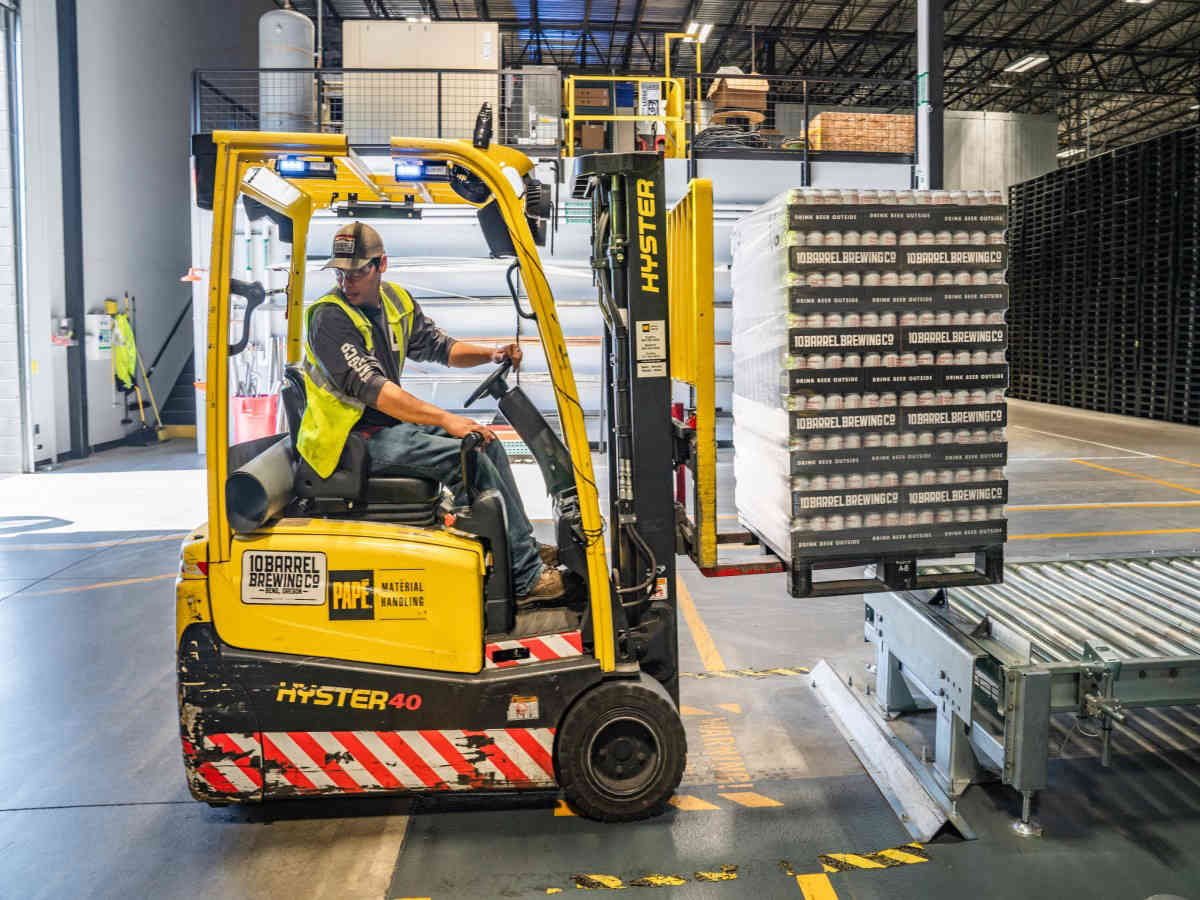The post-pandemic dilemma is a tough one to face. Planning for the post-pandemic era is difficult because so many variables can change and impact your business in such a short time. With so much uncertainty, it’s hard to know how you should be preparing for supply chain scaling post-pandemic? Thankfully we have some tips on how to prepare for this post-pandemic reality!
Expect shifting priorities and focus.
With the threat of a pandemic looming, it’s important to remind employees that priorities and focus may shift during this time. As an employer, you must provide for your employees in any way possible. To ensure productivity and safety on the job, you must communicate these changes with your team before they happen. They are also likely aware of how the pandemic affects people around them, so be sure to take care of their needs. We hope all goes well, but we want everyone prepared for what could happen.
Set goals and updates.
To make sure that your team remains engaged, set clear goals with concrete deadlines. This will help them feel more connected to their work and give them a sense of purpose. In addition, provide regular updates on progress to know that things are happening behind the scenes. You may even consider hosting an informal meeting or gathering from time to time to touch base, especially if it’s been a while since any employees have visited the office. These simple steps will go a long way in helping maintain morale during these trying times.
Commit to your goals.
The recent pandemic has had a massive impact on the business industry. Nearly every company is experiencing some loss in productivity, and many have even shut down completely. Regardless of how your company is affected by this virus, it’s crucial to stay committed to achieving your goals for the year ahead. It may not be easy, but if you take time out of each day to work towards these goals, then you’ll feel more accomplished at the end of each day when you’re able to cross them off that list!
Gauge and understand the future rules of operation.
The warehouse manager is responsible for the safety of employees, cargo, and facilities. Therefore, warehouse managers should be aware of new regulations or guidance that may impact their operations. It’s essential to evaluate these changes to stay compliant and avoid fines or loss prevention issues and keep you and your employees safe and healthy.
Prioritize operations based on restrictions.
One of the most significant restrictions is the limitation on international travel, which will significantly impact your ability to receive and ship goods. With that in mind, it’s essential to prioritize your warehouse operations during this time for increased efficiency and reduced stress.
Evaluate and identify your team and their responsibilities.
In the past, companies have been able to reduce costs by laying off or furloughing employees. But these strategies are not as effective in today’s situation. Layoffs and furloughs can be an excellent way for businesses to cut their expenses. However, they don’t work as well when trying to compete with other companies that still have full employment.
It is more important than ever for warehouse managers and owners to know who they lost during layoffs or furloughs in tough economic times like these. Figure out who has left the company to make sure that they are not coming back on Monday morning expecting their job back when nothing is waiting for them. Next, identify which positions were eliminated and decide if there’s any way to fill those positions internally before hiring externally from the market again. Lastly, take some time now and look at how best to communicate with your team members about these changes and how they will affect their employment in the future.
Secure and maintain your suppliers.
In a pandemic, it is not only your employees and customers you need to worry about. If your suppliers are also affected, you may lose access to critical parts for production or even raw materials necessary for manufacturing. To avoid this situation, you must work with them now to prepare themselves in case disaster strikes.
There are many ways that warehouses of all shapes and sizes can work with their suppliers: from developing a specific plan on how to communicate during times of crisis; creating contingencies for what supplies will be available if certain items cannot be shipped based on location; researching areas where production could take place should there be an interruption in supply lines due to natural disasters or other unforeseen events.
Plan a strategy for personnel acquirement.
If you’re like most warehouse managers, you know that the worst thing a company can do during a pandemic is sending employees home. Instead of continuing operations as usual and risking exposure, it’s essential to create a personnel plan that will help keep your company running smoothly through this challenging time.
The personnel plan should include: how to communicate with employees, what they should do if they are sick, how often they need to come into work during this period, and any other pertinent information that would help them through this stressful time.
Determine the pros and cons of investing in cloud-based tools.
With the pandemic causing widespread illness and death, it is vital to take steps to safeguard your warehouse operations. You may be wondering if now is the time to invest in cloud-based tools for your company’s needs.
The answer can vary depending on the size of your operation and what you need from a given tool. Cloud-based software solutions have become increasingly popular as more companies are turning towards them. Still, they also come with an associated increase in monthly costs that some small businesses cannot afford. However, many experts agree that investing in these tools will help save money down the road because they allow workers to access information at any time without requiring desktops or laptops.
Make no room for fulfillment errors.
With the pandemic, it’s essential to have a tight grip on fulfillment accuracy. The warehouse manager has a responsibility to ensure that their company can still fulfill orders during this crisis.
Here are some tips for maintaining proper inventory levels:
- Utilize pallet stacking software that will help you track what items are running low or out.
- Keep your inventory room as organized as possible with shelving systems and labeling standards.
- Make sure all employees know which products go where by posting signage around the facility.
You might need to rethink your expectations of how much you’ll be able to do in a day. A pandemic can leave many things at the mercy of chance, but it doesn’t have to ruin your business as well. So be ready for whatever comes with these tips and stay calm during this difficult time. Your customers will appreciate that too!






